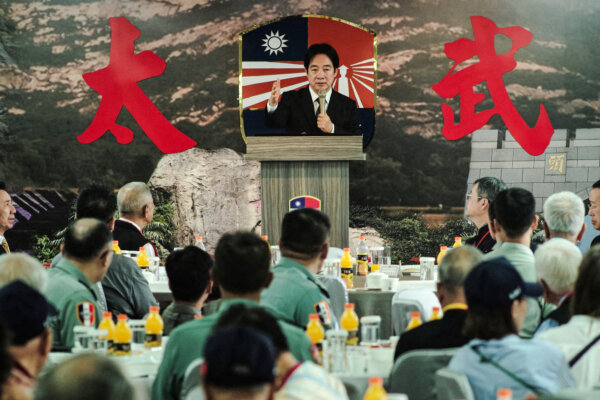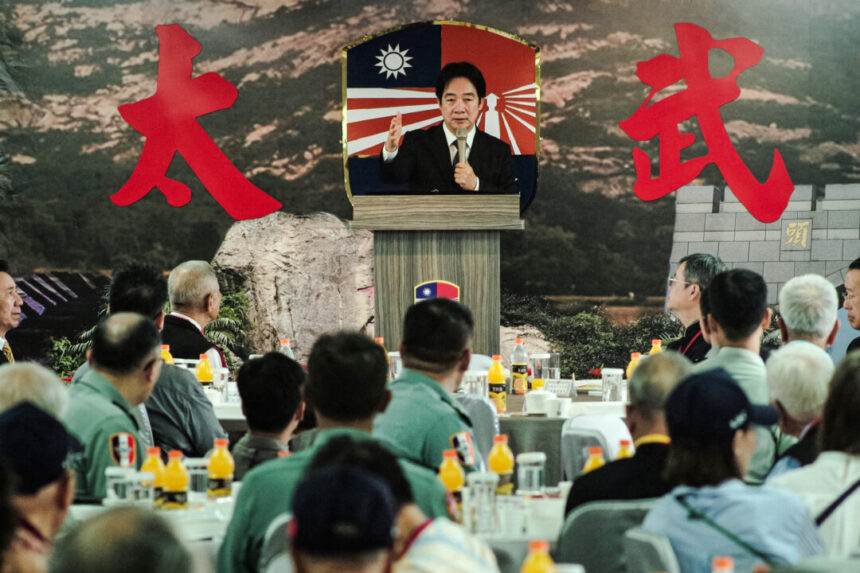
Commentary
China recently conducted a “joint combat readiness patrol” around Taiwan on Oct. 27, involving at least 19 People’s Liberation Army (PLA) aircraft, including Su-30 fighter jets and PLA Navy warships, as reported by Taiwan’s defense ministry. This show of force was seen as a response to Washington’s approval of a $2 billion arms sale to Taiwan, including radar and the National Advanced Surface-to-Air Missile Systems (NASAMS). This move by the United States highlights the increasing tensions surrounding Taiwan as a potential hotspot for conflict.
NASAMS has demonstrated its air defense capabilities, including the ability to launch AIM-9X Sidewinder Missiles, as seen in its success in Ukraine against enemy missiles and drones. The decision to send NASAMS to Taiwan indicates the escalating threat of conflict over the island.
Despite China’s aggressive stance, Taiwan’s President Lai Ching-te remains defiant, asserting Taiwan’s de facto independence and vowing to protect its territory. The PLA’s military exercises and maneuvers around Taiwan, such as the recent “Joint Sword-2024B” exercise, only serve to increase tensions in the region.
In response, Taiwan is enhancing its defenses and preparing for potential conflict by stockpiling food and resources, including establishing a wartime food plan and increasing reserves of natural gas and oil. The geopolitical implications of a conflict over Taiwan are significant, emphasizing the importance of deterring war and preserving peace in the region.
The United States and its allies are taking steps to support Taiwan and deter aggression, with President Joe Biden reaffirming a commitment to defend the island. A coalition of nations, including Germany, Japan, Australia, New Zealand, and Canada, is demonstrating solidarity with Taiwan through naval transits and statements denouncing China’s actions.
While some may view these actions as provocative, it is essential to stand firm against China’s expansionist agenda and protect the sovereignty of Taiwan. The historical context of China’s ambitions toward Taiwan underscores the need for unity among nations that value freedom and independence.
In the face of growing threats, democracies must show resilience and unity to deter aggression and maintain peace in the region. By standing together, the international community can send a strong message to authoritarian regimes and safeguard the principles of democracy and self-determination.
Views expressed in this article are opinions of the author and do not necessarily reflect the views of The Epoch Times.






